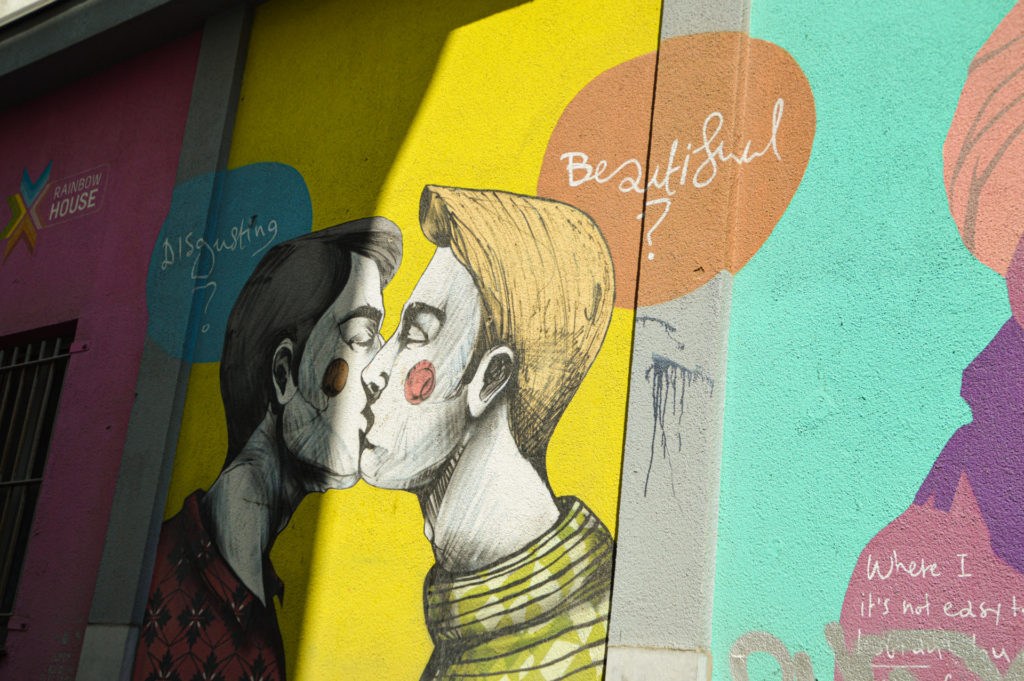Twenty years ago today, Belgium officially recognised the right of same-sex couples to marry. Since then, more than 1,000 same-sex couples have been married in the country every year.
On 30 January 2003, Belgium became the second country in the world, after its neighbour the Netherlands, to approve same-sex marriage. On this day, the law "opening up the possibility of marriage to people of the same sex" was approved by the House of Representatives. The first same-sex marriage, celebrated several months later on 1 June, represented the culmination of several years of political struggle.
"In Belgium, we can be proud: 'rainbow families' are families in their own right, with the same rights and opportunities as others. Everyone can marry the person he or she loves and can start a family with that person," State Secretary for Equal Opportunities, Gender Equality and Diversity, Sarah Schlitz, said on the occasion.
Tweet translation: "20 years already, what a milestone! On 30/1/2003, I confidently voted in Parliament for the law allowing same-sex marriage. A historic date that changed the lives of so many couples 🌈 With this vote, Belgium became the second country in the world to recognise same-sex marriage."
The bill helped to considerably change the minds of people opposing such marriages. Moreover, figures indicate that the divorce rate among same-sex couples is significantly lower than among heterosexual couples in Belgium.
More than 30 countries in the world have since approved a similar law; Andorra, one of Europe's smallest countries, announced it would legalise same-sex marriage in February.
Long road
Schlitz states that Belgium has historically been more progressive on LGBTQ+ issues than other countries. The Belgian Penal Code has never punished homosexual relations between adults, unlike in other countries.
However, legal cohabitation was only possible for people of the same gender from 1 January 2000, seven years after a bill proposing to allow cohabitation contracts for same-sex couples by Yvan Mayeur of the French-speaking socialist PS party.
The same-sex marriage law was tabled in 2000 by Magda Aelvoet of the Agalev party (now the Green Groen party), who was a driving force behind the proposal. She believed that the right to marry is a fundamental right and that opening up marriage is the only real guarantee of equal treatment between gay and straight couples.
Before being approved, the bill received a negative opinion from the Council of State, which noted that a different treatment of straight and gay couples is possible "because only straight couples can have children," a decision that Aelvoet denounced. Then Prime Minister Guy Verhofstadt subsequently added his voice to the cause, paving the way for it to enter into legislation.
Related News
- Hate offences against LGBTQIA+ community are underreported, legislator says
- More people distancing themselves from Catholic Church in Belgium
However, same-sex couples were still not legally allowed to adopt a child until 2006 when Belgium became the seventh country in the world to recognise this adoption. In a statement marking the occasion, PS added that even in 2023 there are still many struggles ahead for the community; same-sex couples continue to face violence and opposition.
Schlitz celebrated the protections and guarantees of LGBTQ+ rights achieved in the last 20 years. These include the right to medically assisted procreation, increased efforts to combat targeted discrimination, the banning of conversion therapies and the right to change one's gender in the national register by simple declaration.
"As Secretary of State for Gender Equality and Equal Opportunities, I want to continue this Belgian tradition of openness and respect for the rights of LGBTQ+ citizens by strengthening their protection and by completing the legislative advances requested by grassroots organisations."

